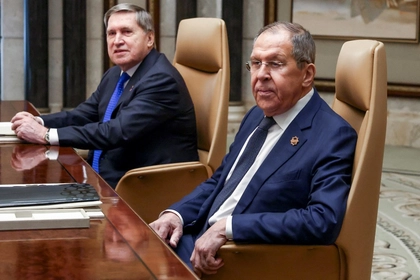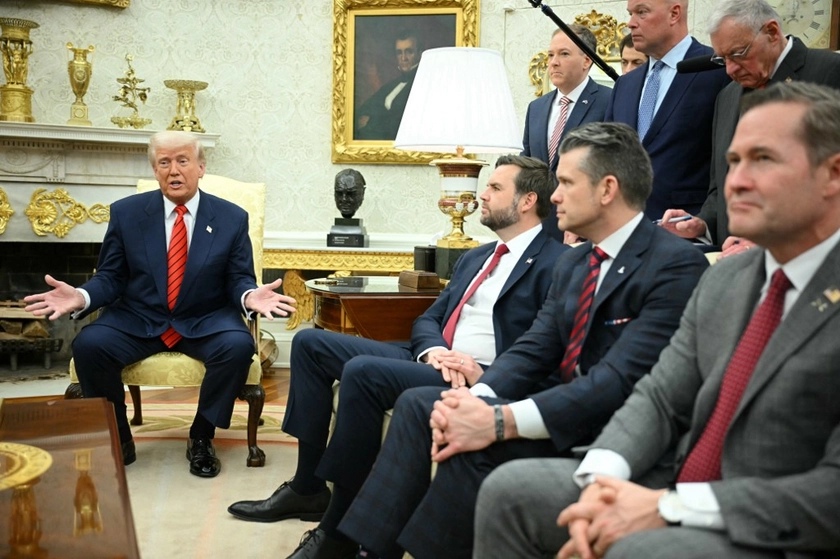For 16 years, from 2005 to 2021, Angela Merkel was Chancellor or Prime Minister of Germany. She was the most powerful politician in Europe, widely popular and respected. Her boring 700-page memoirs have just been published in 30 languages and, after reading them, we are all struggling to figure out what she was really all about. The answer is as revealing as it is depressing.
Her book has received many reviews, most of which are negative for good reasons. One of them has the fitting title: “Has Angela Merkel No Shame?” Obviously not. Apart from admitting minor protocol errors, she tries to tell us that she was pretty much perfect, even though we can now see the result of her policies.
JOIN US ON TELEGRAM
Follow our coverage of the war on the @Kyivpost_official.
The publication of this book will damage her reputation forever. Presumably, her reason for the early publication was merely financial.
During her time in office, Merkel seemed to epitomize wisdom, consensus and stability, but afterwards she seemed to have embodied inertia and folly. She exacerbated Germany’s energy dependence on Russia, its economic dependence on exports to China, and she failed to implement domestic reforms. Her reckless immigration policy fueled the far-right. At the same time, she held back German defense spending. She led the Western negotiations with Putin over Ukraine, but this book shows she had no idea.
Merkel offers no hint of a strategy or vision. She does not present a political program, but gives the strong impression that she did not know what she was doing. During her 16 years in office, Germany fell behind. In the euro crisis, she delayed decisions and exacerbated the difficulties for everyone. She shows no economic understanding and no concern for Germany’s increasing backwardness.

US-Russia Talks Conclude After 12 Hours, Without Comment From Either Side
The most readable part of this memoir is the first 100 pages, where she describes what her life was like as the daughter of a Lutheran pastor in the German Democratic Republic. The rest is a boring résumé of mostly irrelevant encounters with no relevant new insights. She offers few thoughts and no philosophy, while telling us in detail who she liked or disliked.
As an East German chemist, Merkel was elected deputy leader of the CDU at the age of 35, just two years after becoming a member. She became a member of the Bundestag and a minister. In view of this overwhelming success, one would have expected Merkel to show gratitude. Instead, she is bitter and vindictive, revealing herself to be a callous careerist with few political views beyond support for East Germans, women and German reunification. She harbors a grudge against the many people who were smarter than her. The two oblivious CDU successors she has chosen have failed in short order, and her third successor, Friedrich Merz, has bucked Merkel’s resistance.
One of Merkel’s most important foreign policy actions took place at the NATO summit in Bucharest in April 2008, when she and French President Nicolas Sarkozy blocked the action plan proposed by George W. Bush for the membership of Ukraine and Georgia. Merkel discusses this in detail. Her first argument is: “Nobody believed that the Russian Federation could give these countries what they long for: freedom, self-determination and prosperity.”
Apparently, Merkel accepted Putin’s right to decide things in his so-called “near abroad.” She continues: “I thought it would be playing with fire to discuss the MAP status for Ukraine and Georgia without analyzing the situation from Putin’s perspective.” She thus left the prerogative of deciding on NATO membership to Putin.
She continues: “I think it is illusory to believe that the MAP status of Ukraine and Georgia would have protected them from Putin’s aggression...” She does not seem to have realized that only NATO could have protected them from Putin’s later aggression, leaving Putin’s later invasions of both countries without commenting on this.
Merkel devotes a long chapter to Euromaidan and the Minsk process, which she strangely titles “Peace and Self-Determination in Ukraine,” as if she does not want to acknowledge her failure. She paints an accurate picture of Putin as a malicious and mendacious character but does not draw the obvious conclusion that she – and the West – would be better off opposing him.
She is also unable to explain why she spoke out against arming Ukraine after the Russian aggression in 2014. She simply seems naive when it comes to foreign policy. She describes at length how much she detests Putin, but she did so little to counter him apart from supporting Western economic sanctions against Russia from 2014.
Merkel has failed spectacularly in energy policy. After the Japanese Fukushima disaster in 2011, she suddenly and foolishly decided to abolish nuclear energy in Germany. She implemented this harmful policy in such a way that Germany became even more dependent on Russian gas and environmentally harmful German coal.
The Nord Stream 1 pipeline was initiated by her predecessor Gerhard Schröder, so she cannot be blamed for that, but she was responsible for the far worse Nord Stream 2 pipeline, which was supposed to replace all Russian gas transit through Ukraine. At the time, she insisted that it was a commercial project, which it was not. She admits that “the pipeline became a relic of a failed investment,” but she conceals the fact that it was her fault and that Germany’s dependence on Russian gas greatly increased during her far too long time in office.
It is significant that Merkel does not mention the most successful member of her cabinet, Ursula von der Leyen, who was a minister under Merkel for 14 years, presumably because she surpassed Merkel in both rank and reputation. She is currently in her second term as President of the European Commission.
It is shocking that a politician as petty and mediocre as Merkel was able to govern Germany for 16 years. She left Germany economically stagnant, highly dependent on Russian energy and almost defenseless. Few politicians in democracies have failed so badly over such a prolonged period of time.
Merkel’s memoirs should make Germans think about how they could have let her get it so wrong. Today’s Germany had better draw the lessons and get on with it!
The views expressed in this opinion article are the author’s and not necessarily those of Kyiv Post.
You can also highlight the text and press Ctrl + Enter











